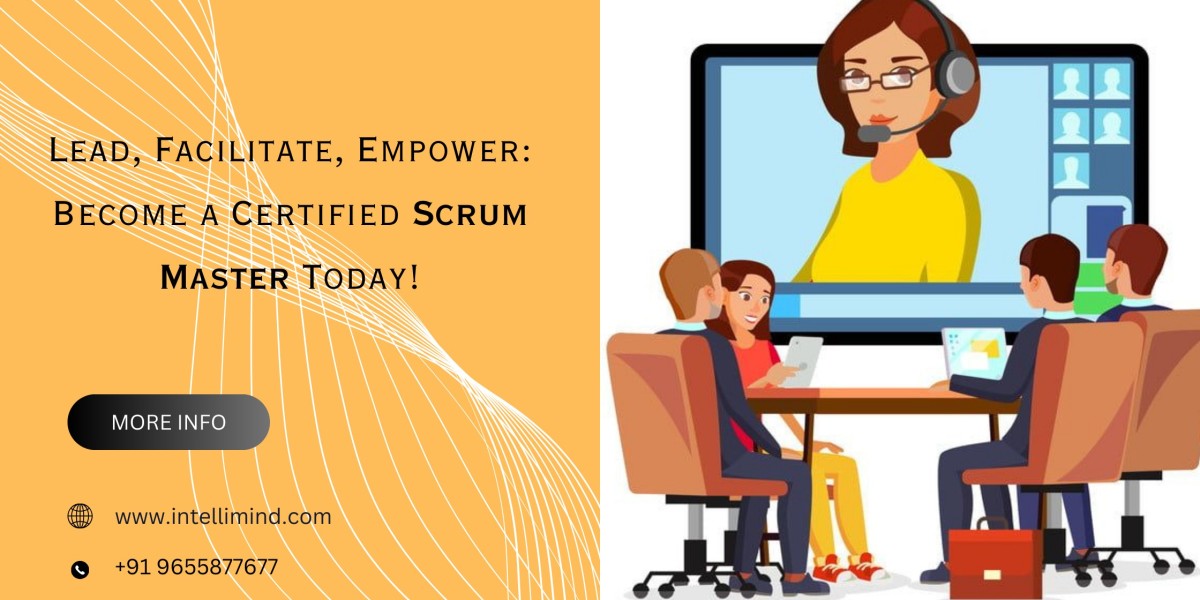Getting Certified Scrum Master (CSM) is a major milestone for professionals who want to take their career to the next level in Agile project management. The certification ensures that your knowledge of Scrum principles, roles, and practices is solid, and you are an asset to any Agile team. Passing the CSM exam, however, demands serious preparation, good comprehension of Scrum concepts, and practical experience. One of the most effective ways to prepare is by joining a Scrum Master Training in Bangalore, where you can learn extensive knowledge and practical experience from experts in the industry. In this blog, we will discuss necessary study tips and techniques to ensure that you pass the CSM exam confidently.
1. Know the Exam Format and Syllabus
The CSM test is 50 multiple-choice questions, and you must answer at least 74% (37 questions correctly) to pass. The questions touch on important Scrum concepts such as roles, events, and artifacts. Reading the Scrum Guide and knowing the fundamental framework is essential. Knowing the exam format allows you to concentrate your preparation on the appropriate topics.
2. Read the Scrum Guide Thoroughly
The official guide by Jeff Sutherland and Ken Schwaber, Scrum Guide, is the definitive resource for learning Scrum. As the CSM exam relies on this guide, reading the book three to four times is strongly advised. Keep an eye on important topics such as empirical process control, self-organizing teams, and Scrum values to get a basic understanding prior to the exam.
3. Take a Certified Scrum Master Training
Attending an official Scrum Master Training in Bangalore is a prerequisite to trying the CSM exam. These trainings, conducted by Certified Scrum Trainers (CSTs), are hands-on, interactive, and include real-world case studies that reinforce important Scrum concepts. Training allows you to ask questions and clear your doubts directly with the experts.
4. Practice Tests to Check Readiness
Practicing using sample questions and mock tests is among the best strategies for preparing for the CSM exam. They enable you to discover weak areas and enhance time management. Free or paid practice tests are offered by many websites, mimicking the real test experience. Reading through your answers and knowing the rationale behind them can give you more confidence.
5. Concentrate on Scrum Roles and Responsibilities
The CSM test checks your knowledge of Scrum roles—Scrum Master, Product Owner, and Development Team. You must be able to differentiate clearly between their tasks and interactions. For instance, understanding that the Scrum Master attends Scrum events but does not delegate tasks is a key thing to keep in mind. Role-based questions will make you successful if you master them.
6. Master Scrum Artifacts and Their Purpose
Scrum artifacts—Product Backlog, Sprint Backlog, and Increment—are at the core of Agile project management. The test will evaluate your knowledge of their purpose, ownership, and how they change in a sprint. Understanding how backlog refinement works and the role of the Definition of Done (DoD) can assist you in answering related questions correctly.
7. Master the Significance of Scrum Events
Scrum events—Sprint Planning, Daily Stand-ups, Sprint Review, and Sprint Retrospective—structure the development process. Each event has a specific goal and time-box. The CSM exam often includes questions about event duration and purpose. For example, Sprint Planning should not exceed 8 hours for a 4-week sprint, and Daily Stand-ups should be kept within 15 minutes. Understanding these time-boxes is essential for exam success.
8. Understand Empirical Process Control and Agile Mindset
Scrum is founded on empirical process control, that is, transparency, inspection, and adaptation. The CSM exam will measure your understanding of these principles and how they apply in Agile development. Understanding how to think like an Agile person—accepting change, collaboration, and continuous improvement—is essential to responding effectively to scenario questions.
9. Engage in Scrum Discussions and Communities
Participating in Scrum forums, LinkedIn group discussions, and Agile meetups can help understand actual Scrum implementation. Sharing experiences with successful professionals can reveal important insights and simplify complex aspects. Participating in local Agile events or discussing with Scrum practitioners in Bangalore Scrum Master Training can still solidify your knowledge.
10. Remain Calm and Assertive During the Exam
On the exam day, you must have a distraction-free quiet area. Carefully read all the questions, strike out irrelevant answers, and also be economical in using time. Because the CSM exam is an open-book one, you are at liberty to check from the Scrum Guide but make use of the preparedness so that the 60 minutes expire with completing the exam. Maintain calm and remain confident and thus give a better performance.
Conclusion
It takes a blend of theoretical knowledge, hands-on experience, and strategic preparation to pass the Certified Scrum Master exam. With the Scrum Guide, practice tests, and attendance at an accredited Scrum Master Training in Bangalore, you can gain the confidence to pass the exam. Upon certification, you will be well-equipped to lead Agile teams efficiently and move your career forward in the field of Scrum. With the right preparation, becoming a Certified Scrum Master is within your reach!



